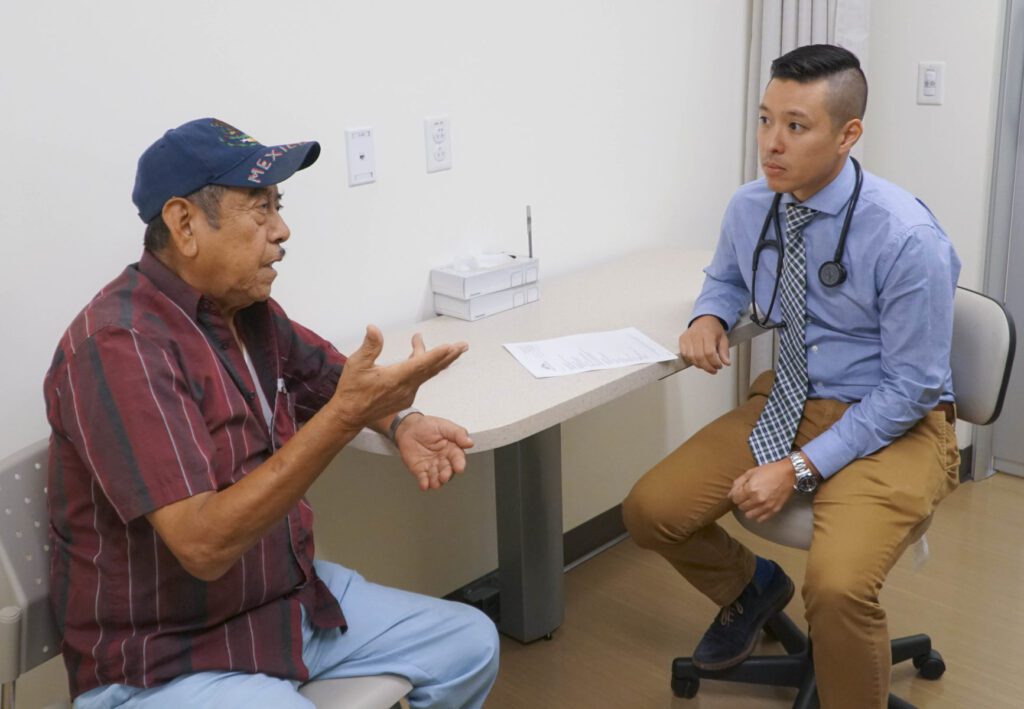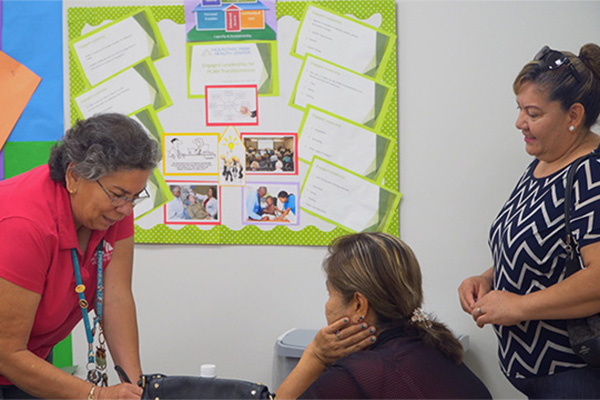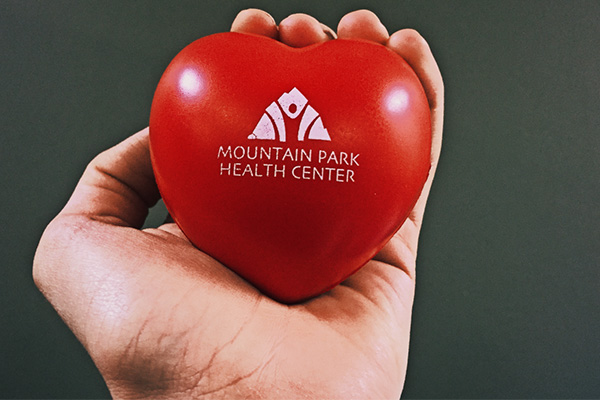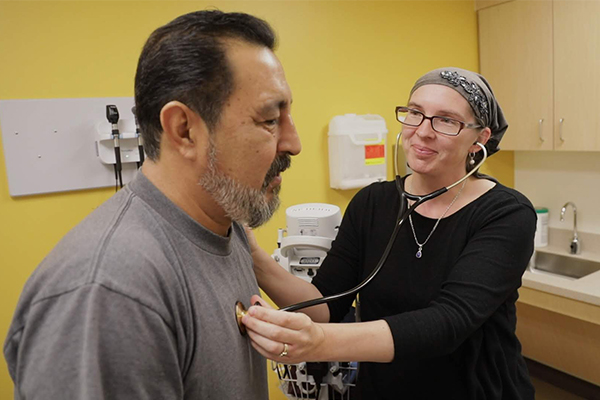February 25, 2016 | Clinics
In 1964, February was declared as American Heart Month by the American Heart Association. Heart disease is the leading cause of death for both women and men, with coronary disease being the most common.
What are some risk factors and what can we do to prevent heart disease? Those are some questions we were curious about, so we connected with our very own Dr. Cheng Zhong to get some answers.
Dr. Zhong works in our Internal/Family Medicine department at the Baseline Clinic. He followed in his mom’s footsteps and became a physician. “As a child growing up in China I literally lived in a hospital, so I was always seeing how she took care of her cardiac pediatric patients,” he told us. “From that young age knew I wanted to become a doctor.”
Find out what Dr. Zhong shared with us about keeping your hearts healthy.


Q. What is heart disease?
A. There are a couple things that can happen and there are various conditions that affect the heart. A person can have a heart attack because of blockage of the arteries of the heart, so a part of the heart stops working. Sometimes the muscle of the heart gets weak or the beat is funny or off.
Q. When should patients start paying attention to their heart health?
A. A patient should always pay attention to heart health. It doesn’t matter if you are young or old, heart disease can sneak up on anyone, especially those that have a family history of heart disease, are obese or have diabetes.
Q. How do I prevent heart disease?
A. A low-fat diet, watching your weight and exercising are the best ways to prevent heart disease.
Working out is something I am an advocate of. I recommend people do some form of cardiovascular exercise to get the heart pumping at least 30 minutes a day and at least three times a week. Cardiovascular exercise is good for everyone.
Q. Is it ever too late to reduce risk of heart disease?
A. No, it’s never too late. Something to keep in mind and work on is increasing your exercise tolerance. That will not only prolong your life but it will also increase your quality of life. If you’re young that’s even better because it will prevent you from having issues later on in life.
Q. How do obesity, cholesterol and high blood pressure go hand in hand with heart disease?
A. Most heart disease is caused by blocked arteries from plaque. High cholesterol leads to plaque buildup, and high blood pressure increases the risk of having damage in the blood vessels and an increase in plaque. If you have a lot of plaque that can trigger a heart attack.
Q. How do obesity, cholesterol and high blood pressure go hand in hand with heart disease?
A. Most heart disease is caused by blocked arteries from plaque. High cholesterol leads to plaque buildup, and high blood pressure increases the risk of having damage in the blood vessels and an increase in plaque. If you have a lot of plaque that can trigger a heart attack.
Q. What are prominent symptoms patients should watch out for that may lead to heart disease?
A. Shortness of breath, or low tolerance when exercising are generally the most common symptoms. You should also watch out for abnormal chest pain or pressure. All those things may point to heart issues. Sometimes people don’t have any symptoms until they develop their first heart attack. People who lead a sedentary lifestyle may not notice until it’s too late. They may get some chest pain even when they are doing a minimal amount of physical activity, like walking. People should always try and do something, even if it’s trying to climb one set of stairs. Start small and work your way up. It’s also important to monitor your family history. If you have a family history of heart disease or diabetes it’s important to see your doctor regularly.

Q. Is heart disease the same for men and women?
A. Heart disease is more common in men than women, but women quickly catch up post-menopause. Women also present slightly different symptoms than men. They may not go to see their doctor with the typical “I have chest pain, I have trouble breathing,” symptoms, but they may have heartburn or nonspecific symptoms, like upper abdominal pain. If you’re a woman and post-menopausal you should see your doctor regularly.
Q. How do you customize each patient’s care?
A. When a patient comes in to Mountain Park and they have a family history of heart disease I often times check their labs first. I will check their cholesterol levels because often times it’s familial. I will also check other metabolic issues and blood pressure, and if necessary treat that. I’ll also screen for diabetes, so all the bases are covered and patients can be treated if they are demonstrating specific symptoms. We will treat the patients but if they develop more severe problems we usually refer them to a cardiologist. We always listen to our patients and address their personal concerns. The bottom line is, it depends on what the patient wants and needs. Some patients are 100 percent on board with changing their lifestyle, while for others, it’s a hard transition. In any case, our care teams are always here to keep you healthy.

Q. What diet will keep my heart healthy?
A. You should eat a variety of fruits and vegetables, whole grains, low-fat dairy products, skinless poultry and fish, and nuts and beans. Limit sweets, red meat, saturated fats and trans fats, and sodium. If people have other issues, such as diabetes, they need to follow those diet recommendations too. It’s always beneficial to talk to a nutritionist in such cases, and that is something we offer here at Mountain Park right when you see your doctor.
Q. Do excessive amounts of stress have a correlation to heart disease?
A. Constant stress can raise your cortisone levels which can cause metabolic issues and lead to obesity, high blood pressure and abnormal sugar levels. All of these things can potentially lead to a heart attack.
Q. What’s the one thing you want everyone to remember about their heart health?
A. EXERCISE! You have to exercise to stay healthy.
For more information, please email info@mphc-az.org



